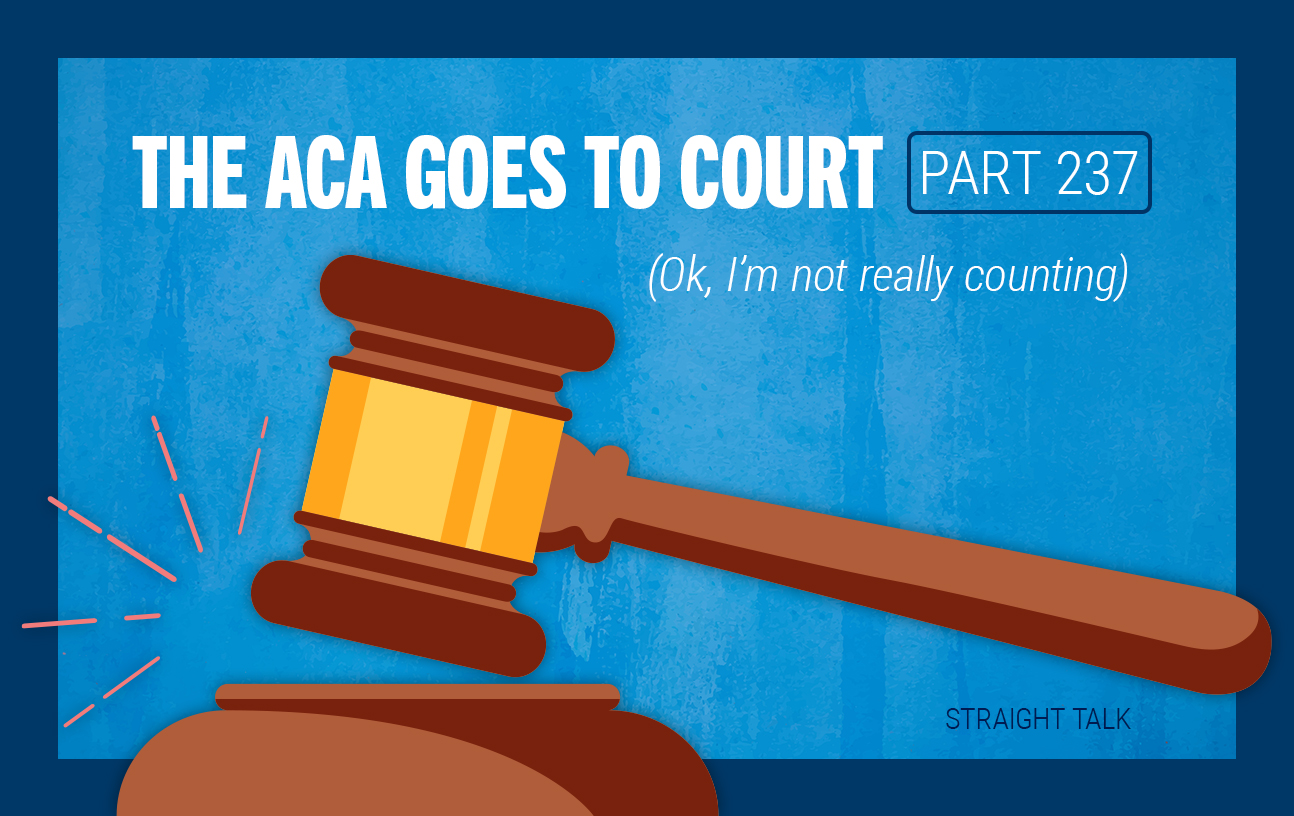A little over 10 years ago, I was sitting in a tiny hotel room in Washington, D.C., waiting for a phone call from a friend who is a lobbyist for our Blue Cross and Blue Shield Association. It was Christmas Eve 2009, and we were awaiting the final vote of the U.S. Senate on the Affordable Care Act (ACA). I remember very clearly thinking that there was nothing to stop the then-Democratic majority from passing the ACA. Certainly, they had put a ton of work, time and effort into the law. But — they put much less time into gaining the trust of the opposition.
I also remember thinking, “Are they really going to redirect 20% of the nation’s economy and create millions of new winners and losers on a straight party-line vote, without a single compromise to bring some of the opposition into the tent?”
Well, they did. And at that moment, a quote from the Roman Orator Cicero jumped into my head unbidden: “Endless monies form the sinews of endless warfare.” And it did. Warfare through the courts, apparently.
Some Pre-Court Case Reading
As hearings for a new U.S. Supreme Court justice have unfolded in the shadow of an upcoming presidential election, the latest court cases involving the ACA have been thrust back into the spotlight.
Although it is easy to lose track of why this continues to happen, it’s always been clear to me (and now, I can tell you!) that because of the way the ACA was created, and passed into law, and regulated into existence, no one should be surprised that we are still fighting in court over it. Doing things with just one party’s buy-in in Washington, D.C. has always had a price.
One of the reasons why Medicare and Medicaid were so much less controversial when passed into law back in the 1960s was that the majority/presidential party at the time worked hard to bring opposition members into the “big tent” of the bill. And so, many from the opposition party voted for it. The party who wrote and created the ACA had such a sizeable majority that they did not put a priority on bringing the opposition into the tent.
I’ve written extensively about the legal proceedings those votes spawned. If you want to catch up, you can start here with my a three-part “Cracks in the Foundation” series that explains why we are still fighting over the ACA:
- Part one – Why are we still fighting over the Affordable Care Act
- Part two – Best laid plans
- Part three – Missing Pieces
As it happens, I also wrote another series on what might happen if the ACA really does go away, all or in part:
- Part one – If the ACA goes away, what changes?
- Part two – Will my health insurance costs go up or down?
- Part three – Will people lose coverage completely?
And if THAT’s not enough to make you an expert on the current lawsuit on the ACA, which is set to go before the U.S. Supreme Court next month, here’s a couple more articles I’ve done explaining the issues involved in that lawsuit:
- The Texas ACA lawsuit: Be careful what you wish for… (March 2019)
- The Fifth Circuit Court Has Decided (December 2019)
What’s at Stake in This Court Case?
So, in November, the U.S. Supreme Court will revisit the 5th Circuit Court’s 2019 decision in Texas v. U.S. and decide, once and for all, a couple of things:
- Is the individual mandate, a key part of the ACA that the Supreme Court upheld as a tax in 2012, still a valid tax if it fails to raise any revenue because it has been reduced to $0?
- If the individual mandate is no longer a tax, then does that render the entire ACA unconstitutional? OR …
- Can the individual mandate portion be severed, and the rest of the ACA be allowed to stand?
That’s pretty much the lineup for the upcoming oral arguments. I would expect a decision from the court to be issued sometime in spring 2021. But we can expect to keep hearing about the ACA leading up to that.
Now, if you took the time to read these articles, you are now the EXPERT for your friends and family on the ACA and why it can’t stay out of the courts! Straight Talk is, we need more experts!
Stay safe!….mrb





No question ACA has been a disaster. But I am concerned if it is totally overturned.
Remember, the ONLY part of the ACA that a willing state could not easily replicate or improve upon is the FUNDING. The ACA, above all things, provides $125B of borrowed funds each year to support the states’ implementations of their Medicaid expansions, and the Advanced Tax Credits on healthcare.gov. It really is a money bill, though few ever talk about that. As long as Congress continues to make that funding available, the ACA could easily be replicated or improved upon by any willing state government.
Having said that, I’m with you, I’d rather they just left it in place. Health insurance is complex enough!.
thanks..mrb